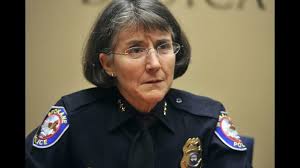Opinion
OP-ED: Crafty Hoax has Stripped Blacks of “Black Power”
Blacks are being played for fools when the term Black History Month is being referred to as, “African American History Month”, due to political correctness.
Black history has taught me that there are many great Blacks in history who were not American. Queen Nefertiti, Queen of Sheba, Marcus Garvey, Nelson Mandela, Desmond Tutu, Pele and Bob Marley; to name a few. As an American, I no more want to be separated from these Blacks in history than a rich person would want to be separated from his or her riches.
Don’t get me wrong, I was never really a big fan of what I see as a, hollow and condescending government declaration to honor Blacks in history. I only have more reasons to object to the terms, African American and African American History Month.
Reading the many present day human rights atrocities reported from Africa, in no way causes me to shout, “I’m African American!” Besides, I believe all life began on the continent of Africa, so what’s the big deal of calling me African?
South Africa is currently dealing with what is known as, “Corrective rape.” This is where men rape women suspected of being lesbian, claiming their attacks will turn the women straight.
A Cameroon homosexual was convicted of sending a text message to another man that contained the words, “I love you.” He recently died in prison due to the lack of medical care for his hernia.
Nigeria has an anti-gay law which commands up to 14 years in prison for those involved in same-sex marriages.
Uganda parliament’s so-called “Kill the gays” law. This watered down version of an earlier attempt to offer the death penalty now states,”Life in prison” for any adult having sexual relations with a same sex child. Adults who have sex with children get no sympathy from me, but what is strange about this law is that there is no “Life in prison” sentence for adults who have sex with children of the opposite gender in Uganda.
Until the 97%, in most areas of Africa do not change their opinion on homosexuality, there is a better chance that I would visit Antarctica before Africa; never mind the fact I still prefer American prisons.
Many elected officials toss around the term African American as if it were a Frisbee at the beach. But when asked to address the issue of “Last one hired, first ones fired” in America, they all stick their heads in the sand.
Some suggest a “Clever governmental plot” to create a more docile Black man, at the height of the Black power movement of the late 60s early 70s, was the impetus for this hundred year old term of African American being pushed into use in America.
A descendent of African slaves, who preferred to be called African American took strong exception to an African who recently became a U.S. citizen whom, also wanted to be referred to as African American. This is troubling. Men of the same skin color pitted against one another by the term African American makes Willie Lynch slap his knee with laughter.
Back in the early 1700s, British slave owner Willie Lynch, was said to have given a speech on how to control Black slaves by pitting one against another. The “Willie Lynch Letter” that contains the plan is in dispute.
Many including myself, believe the letter to be a “Hoax.” Discovered in 1970, the letter which made Lynch famous has discrepancies. The year of the speech appears to have happened before Lynch was born. Nevertheless the letter does have a ring of truth, right down to the promise of controlling Blacks for at least 300 years.
Equality, economic and voting power, cannot be attained without help from those who still prefer the term “African American.” However, we all have a responsibility to respond to a crafty hoax that has stripped Blacks of Black Power!
Activism
OPINION: “My Girl,” The Temptations, and Nikki Giovanni
Giovanni was probably one of the most famous young African American women in the 1960s, known for her fiery poetry. But even that description is tame. The New York Times obit headline practically buried her historical impact: “Nikki Giovanni, Poet Who Wrote of Black Joy, Dies at 81.” That doesn’t begin to touch the fire of Giovanni’s work through her lifetime.

By Emil Guillermo
The Temptations, the harmonizing, singing dancing man-group of your OG youth, were on “The Today Show,” earlier this week.
There were some new members, no David Ruffin. But Otis Williams, 83, was there still crooning and preening, leading the group’s 60th anniversary performance of “My Girl.”
When I first heard “My Girl,” I got it.
I was 9 and had a crush on Julie Satterfield, with the braided ponytails in my catechism class. Unfortunately, she did not become my girl.
But that song was always a special bridge in my life. In college, I was a member of a practically all-White, all-male club that mirrored the demographics at that university. At the parties, the song of choice was “My Girl.”
Which is odd, because the party was 98% men.
The organization is a little better now, with women, people of color and LGBTQ+, but back in the 70s, the Tempts music was the only thing that integrated that club.
POETRY’S “MY GIRL”
The song’s anniversary took me by surprise. But not as much as the death of Nikki Giovanni.
Giovanni was probably one of the most famous young African American women in the 1960s, known for her fiery poetry. But even that description is tame.
The New York Times obit headline practically buried her historical impact: “Nikki Giovanni, Poet Who Wrote of Black Joy, Dies at 81.”
That doesn’t begin to touch the fire of Giovanni’s work through her lifetime.
I’ll always see her as the Black female voice that broke through the silence of good enough. In 1968, when cities were burning all across America, Giovanni was the militant female voice of a revolution.
Her “The True Import of Present Dialogue: Black vs. Negro,” is the historical record of racial anger as literature from the opening lines.
It reads profane and violent, shockingly so then. These days, it may seem tamer than rap music.
But it’s jarring and pulls no punches. It protests Vietnam, and what Black men were asked to do for their country.
“We kill in Viet Nam,” she wrote. “We kill for UN & NATO & SEATO & US.”
Written in 1968, it was a poem that spoke to the militancy and activism of the times. And she explained herself in a follow up, “My Poem.”
“I am 25 years old, Black female poet,” she wrote referring to her earlier controversial poem. “If they kill me. It won’t stop the revolution.”
Giovanni wrote more poetry and children’s books. She taught at Rutgers, then later Virginia Tech where she followed her fellow professor who would become her spouse, Virginia C. Fowler.
Since Giovanni’s death, I’ve read through her poetry, from what made her famous, to her later poems that revealed her humanity and compassion for all of life.
In “Allowables,” she writes of finding a spider on a book, then killing it.
And she scared me
And I smashed her
I don’t think
I’m allowed
To kill something
Because I am
Frightened
For Giovanni, her soul was in her poetry, and the revolution was her evolution.
About the Author
Emil Guillermo is a journalist, commentator, and solo performer. Join him at www.patreon.com/emilamok
Activism
In addition to his work with the NAACP, Rick Callender is the Chief Executive Officer (CEO) of Valley Water in San Jose. In that role, he oversees an integrated water resources system with functions that include managing the supply of clean, safe water; instituting flood protections; and handling environmental stewardship of waterways for Santa Clara County’s 1.9 million residents.

By Edward Henderson, California Black Media
Rick L. Callender holds multiple influential roles. He is the President of the California/Hawaii State Conference of the NAACP (Cal-HI NAACP) and serves on the National NAACP Board of Directors.
Under his leadership, Cal-HI NAACP operates 74 branches and youth units across the state to push initiatives focused on racial justice and equality.
In addition to his work with the NAACP, Callender is the Chief Executive Officer (CEO) of Valley Water in San Jose. In that role, he oversees an integrated water resources system with functions that include managing the supply of clean, safe water; instituting flood protections; and handling environmental stewardship of waterways for Santa Clara County’s 1.9 million residents.
Recently, California Black Media (CBM) interviewed Callender. He reflected on the organization’s accomplishments, challenges they have faced, lessons learned this year, and goals moving forward.
Responses have been edited for length and clarity.
Looking back at 2024, what stands out to you as your most important achievement and why?
One of the things I’m most proud of is the support of policy changes related to the Ebony Alert, which went into place this year. That legislation ensured that Black girls and missing Black women would have their own alert. Often, when they go missing you don’t hear about it for weeks later.
How did your leadership and investments contribute to improving the lives of Black Californians?
It’s not my leadership, it’s the NAACP’s leadership. We’ve helped with legal consultations. Often, when you have something that occurs to you, some people can’t afford a legal consultation. We’ve cleared that hurdle for folks, so they don’t have to worry about the fee.
What frustrated you the most over the last year?
The pullback of a commitment to our community and the pullback from corporations on financing DEI initiatives, equity and civil rights. People have tried to make DEI sound like a salacious word. When you see these funds disappear, it’s because people erroneously think that they promote racism.
What inspired you the most over the last year?
The resilience and the determination of our youth. The youth have always led — not only the civil rights movement — but they have been the ones who will always be willing to step up.
It’s seeing a new Black leadership step up and being able to continue to fight.
What is one lesson you learned in 2024 that will inform your decision-making next year?
This is one thing: we can’t get distracted. We have to stay focused.
In one word, what is the biggest challenge Black Californians face?
Equity. Put anything in front of the word equity, and that’s what we face, from educational equity, criminal justice equity. Equity as it deals with economics. And just being able to make sure that we have the access to do what we need to do.
What is the goal you want to achieve most in 2025?
Staying focused on organizing around elections – and winning.
Activism
COMMENTARY: Will a Dictator’s Loss Change Trump’s Tune?
What’s happened in Syria has the potential of reshaping the politics of the entire Middle East. The U.S. can’t afford to sit back and do nothing. Now is the time to exert peaceful, diplomatic influence on how Syria maintains stability and goes forward with a new democracy.

By Emil Guillermo
In our polarized country, half of America can’t wait, while many of us still wonder, “where’s Kamala?”
I hope President-elect Trump — who famously said during the campaign that he’d be a dictator on day one — eats his words.
Dictators aren’t doing so well these days.
Last weekend, the dictator Bashar al-Assad was run out of Syria and sought exile with his puppet master/dictator Vladimir Putin of Russia. In just about two weeks, a coalition of rebels applied enough pressure to end a family regime in Syria that lasted 50 years.
al-Assad’s wealthy family dictatorship plundered Syria and ruled in terror.
It sounds all too familiar to Filipino Americans, many of whom came to the U.S. fleeing the Philippine dictator Ferdinand Marcos.
al-Assad’s end was different from the Filipinos who forged a peaceful People Power movement that chased the Marcos family to Hawaii where they sought refuge from their U.S. puppet handlers.
But as in Manila, there was cheering on the streets of Syria. Men, women, and children. Christian, Muslims, different sects and ethnicities, all united against al-Assad.
al-Assad has been described as a genocidal narco-trafficking tyrant, whose friends were America’s biggest enemies, Iran, Hezbollah, and Russia, said Mouaz Moustafa, the executive director of the Syrian Emergency Task Force, on CNN.
Moustafa said it was amazing that there would be no more Russian airstrikes, no more al-Assad gulags torturing civilians. “To see good triumph over evil is an amazing thing,” he added.
But last weekend has some trickle down.
Consider that we are talking about al-Assad, the one Tulsi Gabbard consorted with and hyped to her colleagues when she was in Congress. Now Assad has been shamed into exile with his puppet master Russia, and Gabbard wants to be the U.S. director of national security? Given her wrongheaded judgment on al-Assad, can she be trusted with any national secrets?
It’s still not over in Syria, as now there will be a scramble to see what kind of governing democracy emerges.
Predictably, Donald Trump has said, “The United States should have nothing to do with it. This is not our fight. Let it play out. Do not get involved.”
Nouveau isolationism?
What’s happened in Syria has the potential of reshaping the politics of the entire Middle East. The U.S. can’t afford to sit back and do nothing. Now is the time to exert peaceful, diplomatic influence on how Syria maintains stability and goes forward with a new democracy.
Overall, the ouster of the dictator should give Trump pause.
If by nominating MAGA loyalists like Gabbard, Pete Hegseth and Kash Patel, Trump’s testing the evolution to strongman rule in the U.S., he should consider what happened before last weekend.
In South Korea, a weak president tried to declare martial law and was voted down by Parliament. That’s a faux strongman.
Let’s hope Trump learns a lesson from the week’s news.
The next president sets the tone for a politics that’s already toxic.
He needs to remember the joy in Syria this week when an autocrat was dumped in the name of freedom and democracy.
About the Author
Emil Guillermo is an award-winning Bay Area journalist. His commentaries are on YouTube.com/@emilamok1. Or join him at www.patreon.com/emilamok
-

 California Black Media4 weeks ago
California Black Media4 weeks agoCalifornia to Offer $43.7 Million in Federal Grants to Combat Hate Crimes
-

 Black History4 weeks ago
Black History4 weeks agoEmeline King: A Trailblazer in the Automotive Industry
-

 California Black Media4 weeks ago
California Black Media4 weeks agoGov. Newsom Goes to Washington to Advocate for California Priorities
-

 Activism4 weeks ago
Activism4 weeks agoOakland Post: Week of November 27 – December 3, 2024
-

 California Black Media4 weeks ago
California Black Media4 weeks agoCalifornia Department of Aging Offers Free Resources for Family Caregivers in November
-

 Activism2 weeks ago
Activism2 weeks agoButler, Lee Celebrate Passage of Bill to Honor Congresswoman Shirley Chisholm with Congressional Gold Medal
-

 Activism2 weeks ago
Activism2 weeks agoPost News Group to Host Second Town Hall on Racism, Hate Crimes
-

 Activism2 weeks ago
Activism2 weeks agoDelta Sigma Theta Alumnae Chapters Host World AIDS Day Event
























































